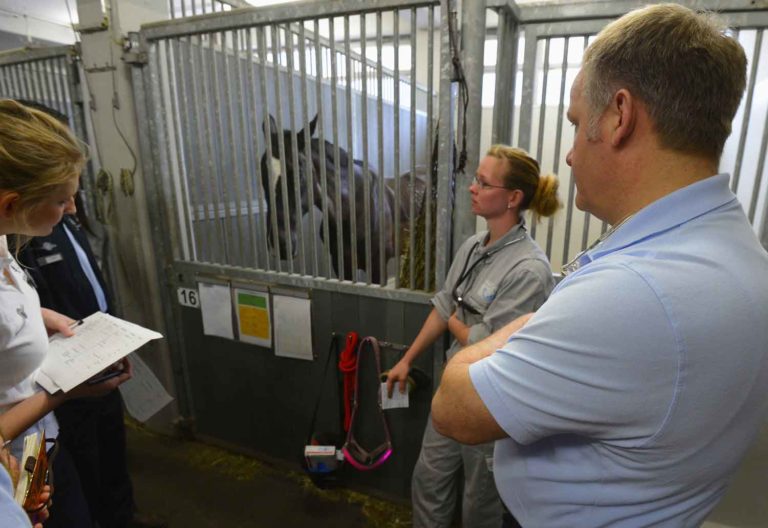
In this episode of The Business of Practice podcast, Shadi Ireifej, DVM, DACVS, joined us to talk about telemedicine triage in equine practice. Ireifej is the owner, founder, and chief medical officer at VetTriage, a company that provides telehealth triage services to pet owners all over the world. In the episode, he discussed how emergency triage can help equine practitioners lower the stress associated with after-hours duty.
Ireifej recognized the need for a veterinary triage service when he noticed how often pet owners would ask the receptionists at the surgical practice where he worked if they should bring their animals in. The receptionists didn’t have the training to answer that question, which added inefficiency and stress to the workplace. Triage seemed like a natural fit for equine practices in addition to small animal practices, because many equine practitioners are burdened with the stress of being on call after hours.
VetTriage builds highly customizable solutions for each practice based on its unique clients, species, radius limitations, communication preferences, and payment policies. “We don’t charge the clinic at all for this service,” Ireifej explained. “The clients pay us directly.” A triage appointment for equine patients on live video with an equine veterinarian costs $75 and includes free follow-up telemedicine consults until the practice is open again.
If the triage doctor thinks the patient should be seen in person, they contact the practice to turn over the case. In all instances, the practice receives a copy of the medical record created by the triage veterinarian. In areas of the country that have fewer equine practices and more limited care, around 60% of the calls do not need to be seen in person until the practice is open again, said Ireifej. In equine-dense areas with more equine veterinarians, around 80% of calls do not require an in-person visit after hours.
Because some diseases are region-specific, Ireifej explained that triage doctors are experienced and proficient, have multiple colleagues on a group chat to provide additional opinions, and have resource documents specific to different areas of the country. Ireifej said most clients embrace the system and understand its necessity as long as the practice educates them in advance. His company provides materials to assist in that process.
In closing, Ireifej said changes such as shifting some of the burden of emergency service are necessary to help the equine veterinary industry. He believes adding triage services can play a role in that change.
For questions, please contact Ireifej at shadi.ireifej@vettriage.com.
About Dr. Shadi Ireifej
Shadi Ireifej, DVM, DACVS, graduated from the State University of New York at Binghamton, where he received his Bachelor of Science in Biology in 2001. He earned his DVM in 2006 from Cornell University’s School of Veterinary Medicine. Ireifej then completed an intensive one-year small animal medicine and surgery rotating internship at Angel Animal Medical Center in Boston in 2007, followed by two intensive one-year small animal surgical internships at Long Island Veterinary Specialists (LIVS) in Plainview, New York. He then completed a rigorous three-year small animal surgery residency at LIVS in 2012 and achieved board certification in small animal surgery. Over the following years, Ireifej worked at several large specialty small animal hospitals as a surgeon until he launched VetTriage in 2019. VetTriage introduced its equine platform in 2023.
Related Reading
- AAEP Commission on Veterinary Sustainability: New Frontiers in Emergency Service
- The Business of Practice: Emergency-Only Practices
- Policies for Emergency Services in Equine Practice
Stay in the know! Sign up for EquiManagement’s FREE weekly newsletters to get the latest equine research, disease alerts, and vet practice updates delivered straight to your inbox.

![[Aggregator] Downloaded image for imported item #18782](https://s3.amazonaws.com/wp-s3-equimanagement.com/wp-content/uploads/2025/11/03125751/EDCC-Unbranded-13-scaled-1-768x512.jpeg)


